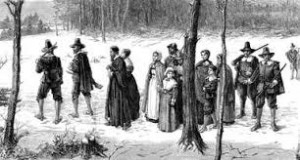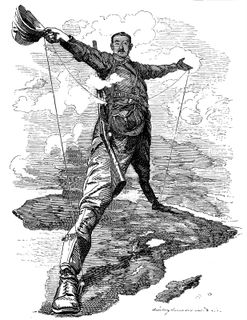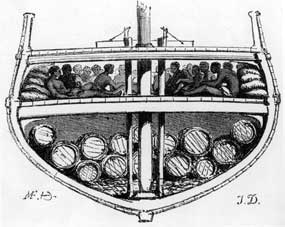Social creatures is what best defines us as humans. Our history bears proof of this. We have lived in communities for as long as we can remember. We co-operate with each other both on the individual and community level. Just like a family, each community needs a head, these community heads are those who represent our interests when it comes to inter community relations. A well organized community structure is one that thrives and benefits in all facets of inter community interaction. Like individuals, groups tend to take undue advantage of other groups. This often leads to issues and can breed never ending conflicts, or on the other hand undeserved servitude for generations, these last so long it becomes the norm. The world has seen more than enough of such behaviour from the so called powerful nations. From the days of slavery through to colonialism and imperialism. It is ironical when the history of the current powerful nations of the world is scrutinized. It appears they have all been subjects to another authority of some sort one way or the other.
No matter how you look at it, I do not share the notion that colonization has any advantages. There are so many effects of colonization and in my opinion they leave nothing but whole generations dependent on others for their well being. Those however being looked up to have not the slightest interest in the well being of those they have subdued, they are indulging in self preservation.
MEANING AND HISTORY OF COLONIALISM
Colonialism is the process or policy where a state or group of states acquire political control of another state or states either through military invasion or diplomatic ways. The number one reason for this is economic, and it is resource (natural and human) based. Current political and economic ties between most nations stem from colonialism. Although it stretches far back into human history, destructive colonialism as I prefer to call it started in the 15th century when Europeans started to travel the world in the name of discovery, these trips were pioneered by the Portuguese and Spanish exploration of the American continent, and the coasts of Africa, the Middle East, India, and East Asia. Even the mere mention of discovery sparks another debate, as most of these lands were already inhabited upon their arrival, however, this is a topic for another day. Upon their arrival, they were astounded by the wealth, order and diversity they found in these places. Most of these explorations were financed by the crowns of their respective states, so it was mandatory that they claim the “new found land” in the name of the crown. During the 16th and 17th centuries,England, France and the Dutch Republic had established empires overseas and were competing with each other. Evidently, this was taking on a competitive dimension. All colonies were property of the crown, that is to say the royal family of the colonialists owned the lands they had colonized, as strange as it sounds this was the order of the day. It must be noted that not all colonies fell without a fight. Some of them fought back and were killed almost to the point of extinction.
COLONIES
The world as we know it today has been shaped by events of the past, notably colonization. Countries are labeled either as french, english or spanish speaking,this is a direct result of colonization. Most Asian, African and middle eastern countries were colonies of one western power or the other. At one point in time, the queen of England was known as the largest land owner in the world. The most interesting colony based on its history and current policies is the United States of America. America was a british colony that completely severed all political control from england with the help of the french. This help was motivated by a longstanding rivalry between the french and english. It was a way of redeeming french pride from their defeat in the seven year war, and also heavily influenced by econmic gains should the enterprise succeed.
In the case of Africa, because there were a lot of players in the division of Africa, and the potential for Africa to be a break away colony, no western country aided in the independence of any African country. After all they all gained from the loot, and there was no reason to stir the boat. Even after independence, most countries still had to battle the political hurdles that were placed before them. That is where the concept of Neocolonialism comes in, this is simply indirect colonization or imperialism. Colonial masters still wanted a say in the politics of independent nations. America was a front runner in these practices. A CIA declassified document outlines these plans though not to the exact detail. There is however an admission of involvement. An example is the CIA “backed” coup that over threw Ghana’s first president.
EFFECTS OF COLONIZATION
The effects of colonization is evident today in many forms. It includes the extinction or near extinction of tribes,economic dependence, stymied development, corruption ( brought on by more modern forms of colonization), wide spread poverty, change of cultures and a loss of self esteem and identity. Most of the colonized territories were forced to change their way of life and to adapt that of their masters. The French for instance had the policy of assimilation, this was an ideological basis of French colonial policy in the 19th and 20th centuries. The French taught their subjects that, by adopting French language and culture, they could eventually become French. This led to the demise of various cultures within current french speaking countries of Africa. Economically, the colonists exploited the natural resources of the colonies after they had taken political control of them. A close study of the colonial transportation systems of West Africa reveals just that. Railways were laid from resource rich areas to the coast for transport to the west. All of these resources were taken free of charge, and they continue to be taken today for next to nothing. When the colonialists were finally thrown out, they ensured that they held a political influence on their old lands. This they did through various means, including but not limited to murder, espionage and economic hits. The new born countries were denied their rightful place in the modern trade of resources, the buyers fixed the prices of both the raw materials and finished goods. In a speech to the british parliament on 2nd February 1835, Lord Macaulay said “I have traveled across the length and breadth of India and I have not seen one person who is a beggar, who is a thief. Such wealth I have seen in this country, such high moral values, people of such calibre, that I do not think we would ever conquer this country, unless we break the very backbone of this nation, which is her spiritual and cultural heritage, and, therefore, I propose that we replace her old and ancient education system, her culture, for if the Indians think that all that is foreign and English is good and greater than their own, they will lose their self-esteem, their native self-culture and they will become what we want them, a truly dominated nation.”the bristish therefore developed methods to achieve just that. They referred to natives where ever they conquered as savages and bushmen. And where the people refused to be governed, they were subdued militarily. This trend persists today in the part of west africa where I come from. Anything european is considered better than its indigenous equal. This method is applied to materials as well as humans. All the third world countries can be found in Africa, Asia, Latin America and the middle East. Most or all of these countries were once colonies of one power or the other. Today African countries that are rich in natural resources are surprisingly dependent upon western powers. This defys common sense.
MODERN DAY COLONIALISM
Today, quite contrary to what most believe, colonialism still exists, but in more subtle forms. They come in the form of military co-operation, economic partnership and other forms that create the impression of trying to help. Like the popular american saying, “there is nothing like free lunch”. However most of the leaders of the third world do not realize this, or are coerced into accepting such programs. America is believed to be in the fore front of modern day colonization. Coming from a colonial past, you think they would know better. In his book “Confessions of an economic hit man1”, John Perkins outlines an intricate plan to form a global empire, this is identical to colonialism as we know it. It however takes on a complex form that can range from bribery of political leaders to mass murder through conflicts. Many of the current global political crises have their roots deeply embedded in modern day colonialism and rebellion.
Colonialism has its winners and losers. However you look at it, it is a bad practice that has profited many if not all the countries in the western world. It has worked to the detriment of the the victim countries. It still continues today albeit in different forms and under several guises. Many have suffered and continue to suffer because of this.
1. Perkins, J. (2004). Confessions of an economic hit man. San Francisco: Berrett-Koehler.










.png)



